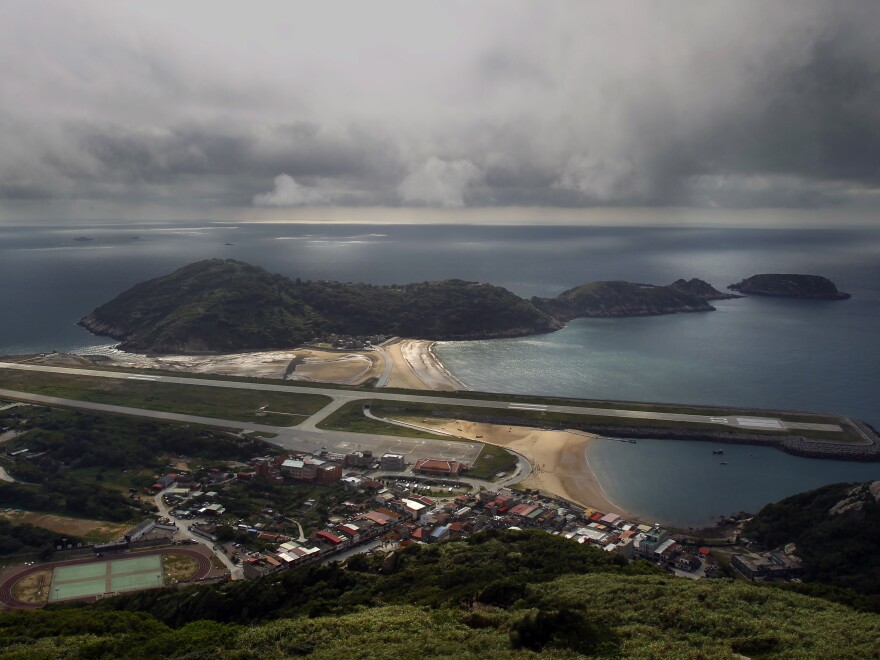TAIPEI, Taiwan — Taiwan's Defense Ministry says a Chinese weather balloon landed on one of its outlying islands, amid U.S. accusations that such craft have been dispatched worldwide to spy on Washington and its allies.
The ministry's statement on Thursday said the balloon carried equipment registered to a state-owned electronics company in the northern city of Taiyuan.
The islet where it was found, Tungyin, is part of the Matsu island ground lying just off the coast of China's Fujian province.
Taiwan maintained control of the islands after the sides split in 1949 amid civil war and they are considered a first line of defense should China make good on its threats to bring Taiwan under its control by force if necessary.
Reached by phone, a publicity officer at the company, identified in the report as Taiyuan Wireless (Radio) First Factory Ltd., said it had provided electronics but had not built the balloon.
The spokesperson, who gave only his surname, Liu, said Taiyuan was among a number of companies that provided equipment to the China Meteorological Administration.
The balloon was likely among those launched daily to monitor weather and was probably set off from the coastal city of Xiamen with no fixed course, he said.
Its deflation was likely a natural outcome of it having reached maximum altitude of around 30,000 meters (almost 100,000 feet), Liu said. Such balloons regularly fly over the Taiwan Strait but have only recently begun to draw attention, he said.
Information on the equipment was written in the simplified Chinese characters used on the mainland rather than the traditional on Taiwan, Taiwan's Defense Ministry said.
China regularly sends military aircraft and warships into Taiwan air identification zone and across the middle line of the Taiwan Strait. That has prompted Taiwan to boost military purchases from the U.S., expand domestic production of local planes, submarines and fighting ships, and extend compulsory military service for all males.
Washington is Taiwan's closest military and diplomatic ally, despite a lack of formal ties, which were cut in 1979. Beijing protests strongly over all contacts between the island and the U.S., but its aggressive diplomacy has helped build strong bipartisan support for Taipei on Capitol Hill.
On Thursday, President Joe Biden said the U.S. is developing "sharper rules" to track, monitor and potentially shoot down unknown aerial objects, following three weeks of high-stakes drama sparked by the discovery of a suspected Chinese spy balloon transiting much of the country.
Biden has directed national security adviser Jake Sullivan to lead an "interagency team" to review U.S. procedures after the U.S. shot down the Chinese balloon, as well as three other objects that Biden said the U.S. now believes were most likely "benign" objects launched by private companies or research institutions.
While not expressing regret for downing the three still-unidentified objects, Biden said he hoped the new rules would help "distinguish between those that are likely to pose safety and security risks that necessitate action and those that do not."
Copyright 2023 NPR. To see more, visit https://www.npr.org.




